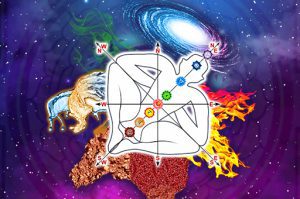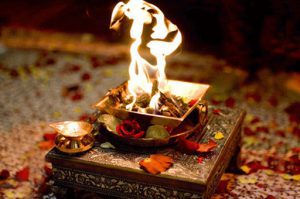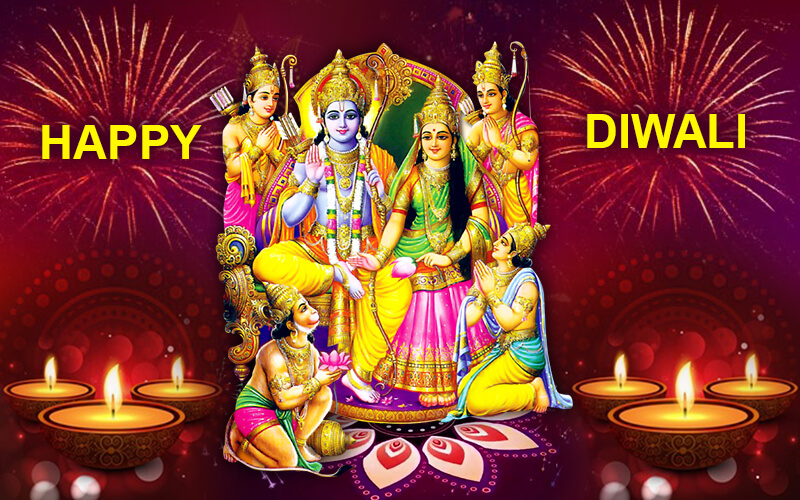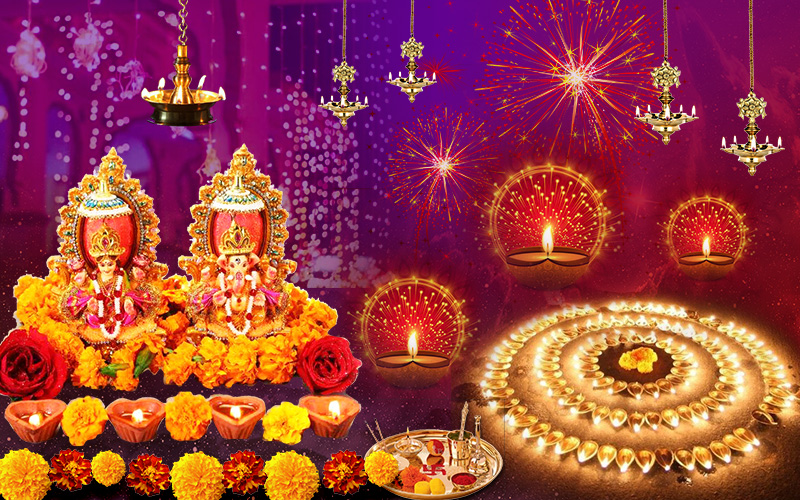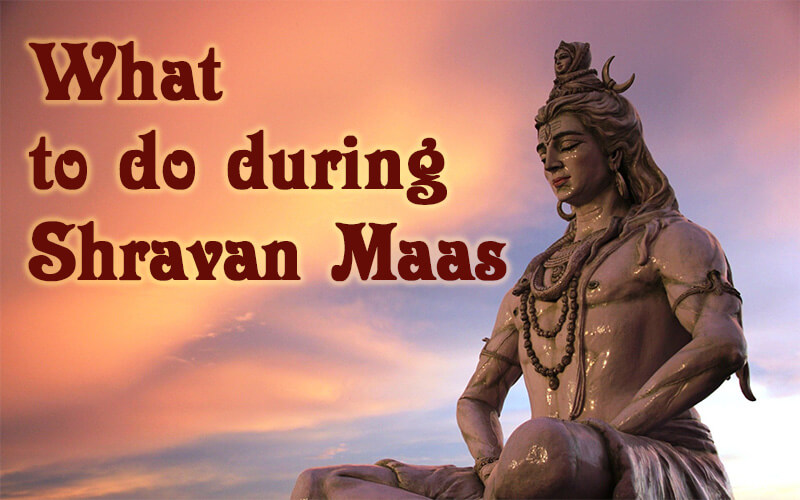
Sawan Mass or Shravan Month is the fifth month of the Hindu calendar. In India’s national civil calendar, Shravan is the fifth month of the Hindu year, beginning in middle-late July from the first day of the Full Moon and ends up the third week of August, the day of the next Full Moon. The North Indians follow the Purnimanta Hindu Calendar in which Shravan month starts fifteen days before the Amavasya calendar followed by the South India.
Shravan Purnima or the full moon day in the month of Shravan coincides with the Nakshatra or birth star of Lord Vishnu or Shravan Nakshatra and is consequently called Shravan maas. During this month, each Somvar or Monday is called Shravan (Sawan) Somvar and is considered highly auspicious.
As per Solar calendar when the Sun enters the zodiac sign of Leo, it is marked as the beginning of Sawan month.. This month heralds the arrival of the South-West monsoons.
Parvati (reincarnation of Lord Shiva’s first wife, Sati) wished from an early age to marry Lord Shiva, according to Shiv Purana. Therefore, she engaged herself in a very long and hard penance (including very strict fastings) during Sawan month. Pleased with her intense devotion, Lord Shiva accepted Parvati and married her, fulfilling her wish.
This month also marks the beginning of the Chaturmas period (deemed ideal for performing penance, observing fasts and being connected to one’s spiritual side). Legends suggest that Lord Vishnu goes into a state of Yoga Nidra and rests under the cosmic ocean for four months, and Lord Shiva takes care of the Universe in His absence. This is interpreted as the cycle of preservation and nurturing comes to an end and destructions begins as the old has to give way to the new.
This month is all about observing a sattvic lifestyle, which includes abstinence from anything that is tamasik in nature, be it food or beverages. Eating fruits, meals made with sabudana (sago) and rock salt, milk and milk products like curd, buttermilk are permissible during the fast. Scientifically, in this month several insects, worms, bacteria and viruses fill the atmosphere, so should follow practices to protect oneself from infections and build immunity.
Each day of this month is auspicious for worshipping Lord Shiva. During this month, all the cosmos is super charged with Shiva elements that purifies the mind, the senses, the body and the self (Soul) through the rituals dedicated to Lord Shiva.
Fasts in Sawan Month
This month is replete with fasts that build self-immunity and kindle inner fire of tapas/penance and enhance spirituality.
There are five types of Vrats (fasts) people can take in the month of Sawan.
These are:
Sawan Somwar Vrat – The first day of the week (Monday) is dedicated to Lord Shiva. People take this fast on all Mondays occurring in the month of Sawan. These are 4 Mondays during Sawan.
Solah Somwar Vrat – People keep this fast for 16 consecutive Mondays. The first Monday of Shravan month is the starting date for Solah Somwar Vrat. Single women wishing for a nice groom mainly do this fast.
Pradosh Vrat – It is a combination of three time periods most linked to Lord Shiva. These are Sawan + Monday + Pradosh. Hence, people take this fast in the month of Shravan, all Mondays and the 13th day of the Hindu month (Trayodashi).
Mangala Gauri Vrat – Tuesday’s fasting during Shravan month is known as Mangal Gauri Vrat. This Vrat is observed for a happy married life and for the long life of spouse.
Shani Vrat – Fasting on Saturdays of this month removes all malefics of planet Shani and gives his benevolence.
Significance of each day during Sawan Mass
Each day of the week during Sawan Mass carries a particular spiritual dedication for a particular god or goddesses, however all these are fenced into Shiva puja, mantras and other observances taken at the beginning and end of the day.
Monday – It is dedicated to Lord Shiva.
Tuesday – It is dedicated to Goddess Gauri.
Wednesday – It is dedicated to Lord Vithala, an incarnation of Lord Vishnu.
Thursday – It is dedicated to Lord Budh and Guru.
Friday – It is dedicated to Goddess Lakshmi & Goddess Tulsi.
Saturday – It is dedicated to Shani Dev (Saturn).
Sunday – It is dedicated to Surya Dev (the Sun God).
Shravan Somwar Vrat Rules and Guidelines
- One should wake up early in the morning, clean the house and then take a proper bath.
- Gangajal (water of Holy Ganga) is spread all over the house to purify it.
- Lord Shiva’s idol or Shivalingam is then duly cleaned and prepared for Puja.
- Rudra Abhishek is done to the Lord with Milk, Water, Ghee, Gangajal, Rose Water, etc.
- The holy mantra ‘Aum Namah Shivaya’ is continuously chanted while meditating upon him, along other holy Shiva mantras too (see below). Meditation is observed too.
- Prayers are offered ideally twice a day.
- Early in the morning
- After the Sunset
For the puja, a lamp with gingelly oil or ghee should be lit.
During the day, allowed foods can be consumed after sunset, having one regular daily meal is recommended during this holy month.
Sawan Somwar Vrat Rules
- The person observing the fast must wake up early in the morning and preferably during Brahma Muhurat.
- After waking up early, then he/she should take a bath and wear clean clothes.
- Then, do Dhyana (meditate) followed by Sankalpa (take a pledge that he/she is committed to sincerely observe the fast).
- Then he/she may seek Lord Shiva’s blessings.
- Maintain celibacy (or sexual restrain in the case of being married) on the day of fasting.
- Consumption of alcohol or tobacco is forbidden.
- Devotees should avoid milk, leafy vegetables, brinjal, onion, garlic, spicy foods and meat.
- Devotees should perform Lord Shiva puja and/or Rudrabhishek, chant Mantras dedicated to Lord Shiva and participate in social volunteering activities for the behalf of the community.
- Lord Shiva is worshipped along His consort Goddess Parvati.
- While performing Abhishek, do not use Haldi (turmeric) and Kumkum (vermillion). Instead, use Chandan (sandalwood). Offer Bilva or Bel Patra, Datura fruits and flowers, raw milk, akshat and chandan for the puja.
- Conclude the puja by performing Aarti.
Foods to eat during Sawan Mass
Typically, people eat just one meal a day during Sawan mass taking in mind that it is imperative to avoid cooking foods with salt, spices, garlic and onions.
Fasting is observed during the day. As stated above a lacto-vegetarian diet is prescribed. In this diet milk and dairy like yoghurt, cheese or paneer are allowed along with omemade butter (avoiding any salt) and ghee.
All kinds of fruits and certain vegetables are part of the fasting’s diet, like arbi, lauki, parval, potatoes, ratalu or suran. Included are also tapioca, rajgeera, foxnuts, buckwheat or singhara. Spices should be avoided though, you can use black pepper, green chili, coriander, ginger, clove, cardamom and cumin in all its forms.
This is not a strict list, thus it is not limited to the above-mentioned foods only. Lemon, dry fruits and all kinds of nuts, sugar and rock sugar (mishri) and coconut also can be added.
It is a general rule that all kinds of grains including rice and lentils must to be avoided. In the same way some kind of vegetables like onion, garlic or radish should be also avoided because they are of a tamasic nature. Also as previously warned above, spices traditionally used in Indian cuisine as red chili, methi, turmeric and any other seeds must to be avoided. Even jaggery (brown raw sugarcane) should not be consumed.
Other auspicious Activities during Sawan mass
Reading Shiva Sutras, Shiv Purana and the Svetasvatara Upanishad. Meditate on His holy form. This is true Bhakti. Surrender completely to Him. Talk and listen to Him.
This is the best month of the year for meditation and yoga practice.
This is the best month of the year for to start wearing Rudraksha beads.
All days during this month are the most auspicious not only for to chant prayers to Lord Shiva but for to chant prayers and do japa mantra to all other deities as well.
- Lord Shiva’s mantras
- Om Namah Shivay
- Shiva Yajur mantra
- Maha Mrityunjaya mantra
- Shiva Gayatri mantra
- Rudraya mantra
- Shiva Chalisa
- Shivoham



